Everything you know about getting a good night’s sleep is wrong
On your phone before bed? It may actually be okay. Experts share the real reasons you can’t sleep, the advice you should ignore and their best tips for getting the most out of your snooze.
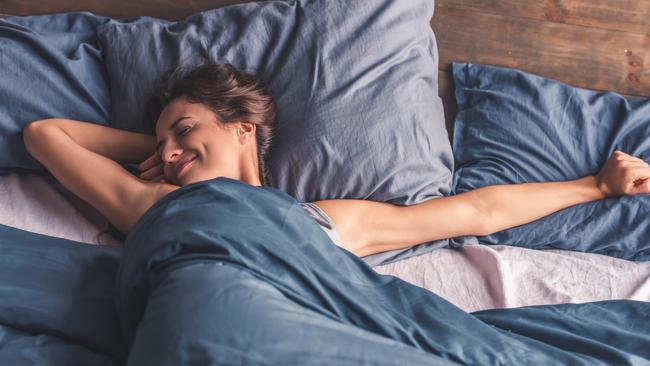
Health
Don't miss out on the headlines from Health. Followed categories will be added to My News.
Do you find yourself tossing and turning at night, unable to get to sleep?
Do you watch the hours on the clock flick over, calculating how little time you have left to sleep?
Well, according to Beyond Blue clinical psychologist Dr Luke Martin that’s one of reasons you can’t sleep in the first place.
It’s slightly ironic but concentrating on sleep too much – and jumping into bed each night thinking about how awful tomorrow will be unless you fall asleep right now – actually just keeps us awake.
This is what the experts suggest you try instead.
Wide awake? Get out of bed, even if it’s 3am
Reading a book or watching your favourite television show in bed before going to sleep can actually make it harder to fall asleep, Beyond Blue clinical psychologist Dr Luke Martin said.
“We don’t want to associate our bed with being awake,” he said.
Reading your book on the couch in dim light, for example, and then getting into bed when you’re ready to fall asleep, could be a good alternative.
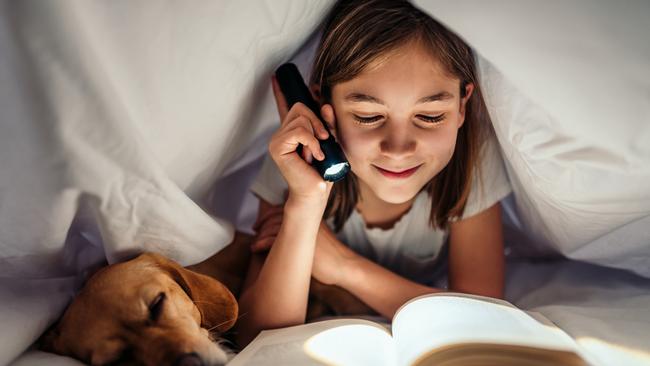
Being awake doesn’t just mean actively reading, watching television or whatever your usual pre-sleep night time routine is either, and experts don’t recommend lying in bed awake – trying to sleep – for long periods.
“If you’re lying in bed and you can’t sleep, it’s a good idea to get out of bed for 20 minutes until you start feeling sleepy again,” Dr Martin said.
Sleep Health Foundation chief executive Dr Moira Junge said the advice applied whether you were trying to fall asleep for the first time or had woken up in the “wee hours”.
“Don’t lie in bed for what feels like longer than 30 minutes,” she said.
“Get out of bed … keep warm, keep it in dim light and just wait to be sleepy again and try again later.
“And that might be five minutes, it might be two hours.”
She said this advice often surprised people, but it was important.
“If you lie there night after night, you perpetuate it,” she said.
“It becomes a pattern the body gets used to.”
She said getting up breaks this cycle.
“Sometimes people say, ‘I did what you said and I only got four hours’,” she said.
“I say, well that’s okay, because we’ll build from that.”
A good sleep routine begins hours before you get into bed
Exposure to daylight plays a key role in the release of the hormone that makes us feel sleep, melatonin.
Dr Martin said a good night’s sleep “really starts in the morning”, by getting early sunlight.
“That really helps set your body clock to the natural night and day cycle, which helps you feel more alert during the day and more sleepy during the night,” he said.
Being physically active during the day, and avoiding caffeine after noon, also sets you up for a better sleep, he said.
“Caffeine has a quarter life of about 12 hours, so if you have a coffee at midday, there’s still a quarter of that coffee left in your system at midnight,” he said.

Using a phone before bed isn’t always bad
Screen time before bed has long been synonymous with poor sleep, based on the idea that the artificial blue light on our phone screens tricks our body into thinking it’s day time.
But Dr Junge said the sleep experts were divided, and that what we use our phone for – playing an engaging game with lots of bright, flashing colours versus following a guided meditation video for example – and the length of tie was more important.
“There was better consensus on that idea,” she said.
“They agree it’s actually what’s on our phone in terms of the content being really engaging, that makes us more aroused, and that’s what’s keeping us awake.”
She emphasised she was not recommending going on your phone before bed.
But she said if you already do and fall asleep just fine don’t beat yourself up.
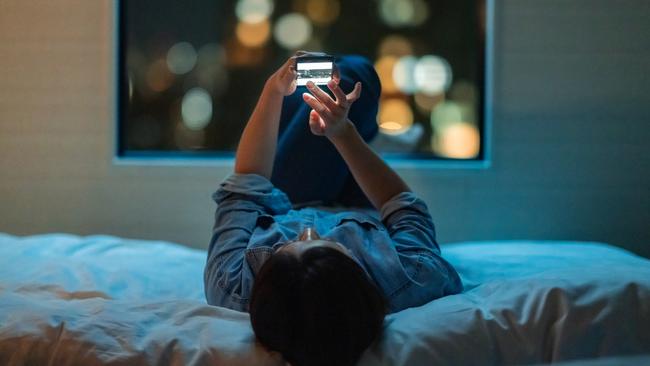
“Funnily enough, I do Sudoku on my screen and it helps me sleep beautifully, but it’s like 5, 10 minutes,” she said.
She said the bigger issue with devices was if you were on them for a longer time – say 45 minutes or more – or if you were unable to turn them off, and sacrifice sleep to use them.
Dr Martin said the evidence behind the no-phones theory – that our brain thinks our phone’s light is “daylight” – was mixed, but he still recommends people avoid screen time an hour before bed.
“I think if you want to err on the side of caution … just make sure you’re not getting bright lights in your eyes,” he said.
“Whether it’s a device or a book that is too engaging … if you want to sleep in bed, you need your heart rate to be down to less than 60 beats a minute.
“If you’re engaged in entertainment, that’s making you a bit worked up, that’s going to be counter-productive to sleeping,” he said.
He said Beyond Blue’s survey – which asked people what helps them sleep – found avoiding screen time before bed was one of the most commonly cited measures by respondents.

Sleeping in can be good for you
Sleeping in can get a bad wrap but Dr Junge said while the latest research did show a consistent schedule was beneficial to long-term health - even more so than getting eight hours a night - sleeping in can also be very important.
She said, if we have not been getting enough sleep each night, our body will carry a “sleep debt” - and sleeping in is our way to make it up.
“Please sleep in an hour or two on non-work days if you are not getting enough sleep,” she said.
Comfort is king
Dr Martin said you don’t want to be too hot or cold, and ideally our bedroom should “be less than 20 degrees Celsius”.
“Having a consistent wind down routine in the evening where you dim the lights, maybe put the screens away an hour before bed, set up your sleeping environment so it’s not too hot and it’s dark,” he said.
Suggestions aren’t rules
Dr Martin said they did not expect people to follow every suggestion perfectly, all the time, and that it was about working what works with your life and current sleep situation.
“With all of these sleep strategies, we need to live our lives as well,” he said.
“So sometimes there’s a bit of a trade off around behaviours you know aren’t going to help your sleep, and if you can kind of deal with that at the time, that’s fine.
“But if you’re wanting to improve the quality of your sleep, maybe you do need to try some of those strategies that kind of take things to the next level.”
For example, he said someone who is feeling very sleep-deprived may benefit from reading on the couch, instead of in bed.
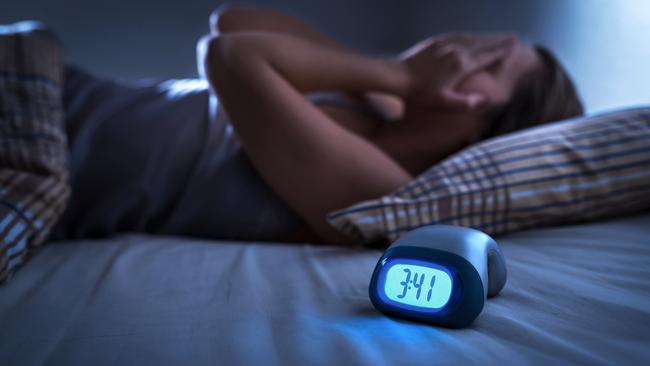
“But if you don’t have a problem with sleep, of course, go for gold in terms of reading in bed.”
He said the same principle applies to the amount of sleep we needed, and the often-cited 8 hours was really just the population average.
He said everyone needs different levels of sleep - typically between seven and nine hours - and this is influenced by everything from genetics to their physical activity levels, but we shouldn’t focus too much on this measure.
“On the one hand, anything less than six hours is associated with risk to your physical health and mental health, but … the quality of your sleep is as important as the quantity,” he said.
“If we become too fixated on a certain number, that can be counter-productive.”
Dr Junge said the latest research suggested consistency was more important than duration, so anyone stressing about not getting eight hours could instead switch their focus to having a more consistent routine.
Worrying about sleep won’t make you sleepy … just worried
Beyond Blue clinical psychologist Dr Luke Martin said they found ‘sleep anxiety’ was a common problem in a new survey of about 400 people linked to Beyond Blue services.
“One of the key things we learnt was the fact that sleep problems and mental health concerns can kind of feed each other and result in a bit of a downward spiral for people that can be quite distressing,” he said.
But he said it was constantly thinking about this link that could lead to one “of the key drivers of this downward spiral”: sleep anxiety.
“So the more you struggle with sleep, the more preoccupied you become with it, and then the more you worry about the impacts of not getting enough sleep,” he said.
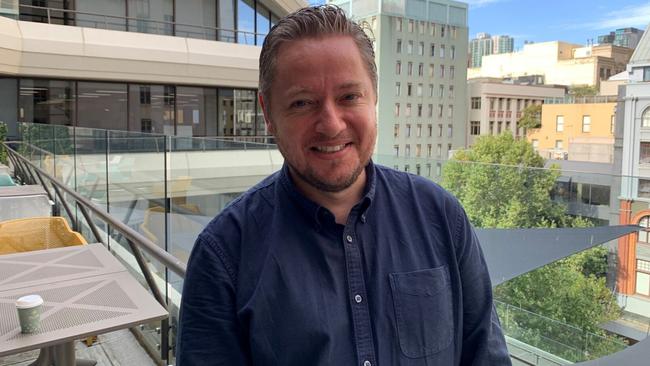
“This can make someone really anxious during the day about not getting enough sleep that night, which then makes it even harder to get to sleep that night.”
The Beyond Blue survey found the vast majority of respondents were cognisant of sleep’s impact on health, with 91 per cent saying they were “very aware” it was “very important”.
“Sleep disturbance can be a lead indicator for an emerging mental health condition,” he said.
“Often we talk about what are the core pillars of our mental health.
“A lot of experts argue that sleep is almost the most important.”
But Dr Martin said telling a poor sleeper how important the sleep they keep missing out on is, can have “unintended consequences” and add to the sleep anxiety.
“This cycle of sleep and anxiety about not getting enough sleep can really compound over time and become quite distressing for people,” he said.
So how do we tackle sleep anxiety?
Dr Junge said one of the best tips was to “resist the temptation to watch the clock”.
“Remove that source, whether it’s a device or an old-fashioned clock,” she said.
She said people also had a misconception they were the only ones waking up during the night, and this wasn’t true.
“We all wake several times a night when we change through different sleep cycles and stages,” she said.
She said we also needed to manage our expectations on time frames, and pointed out that someone who was trying to lose 70 kilograms for example, wouldn’t expect to do so within one month of changing their diet and exercise routine.
“It’s going to take a bit of a process,” she said.
Dr Martin said the key was to “take the pressure off” yourself to get to sleep, and use the above strategies to try and encourage sleep without unrealistic expectations.
“It’s really about … doing what you can to tip the scales in favour of sleep, but also trying to adopt that attitude that if you don’t get enough sleep, it’s not the end of the world,” he said.
“You will be able to cope with it.”
The pair shared their tips with the Herald Sun ahead of Beyond Blue’s free online seminar on the topic tomorrow.
The one-hour event, ‘How to sleep well and improve your mental health’, will run on Tuesday August 6 at 12.30pm.
To register for free, visit https://beyondblue.tfaforms.net/234




